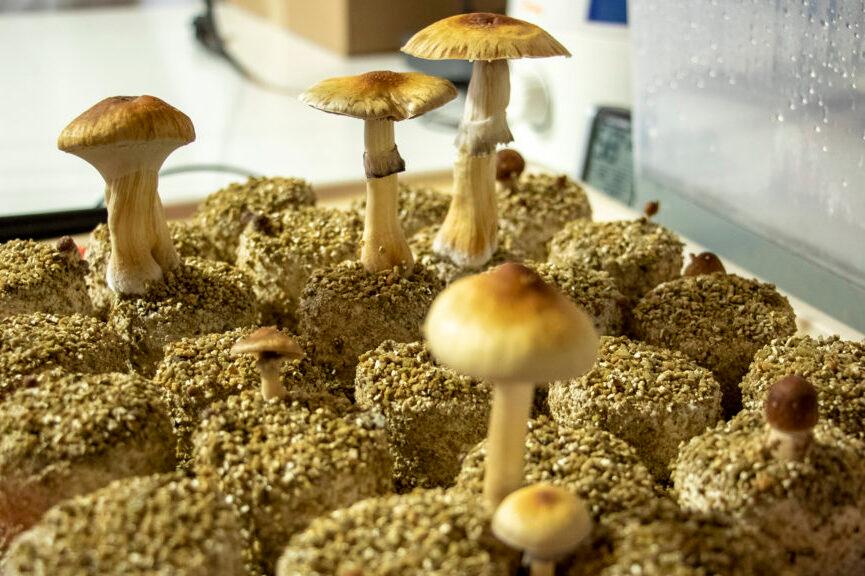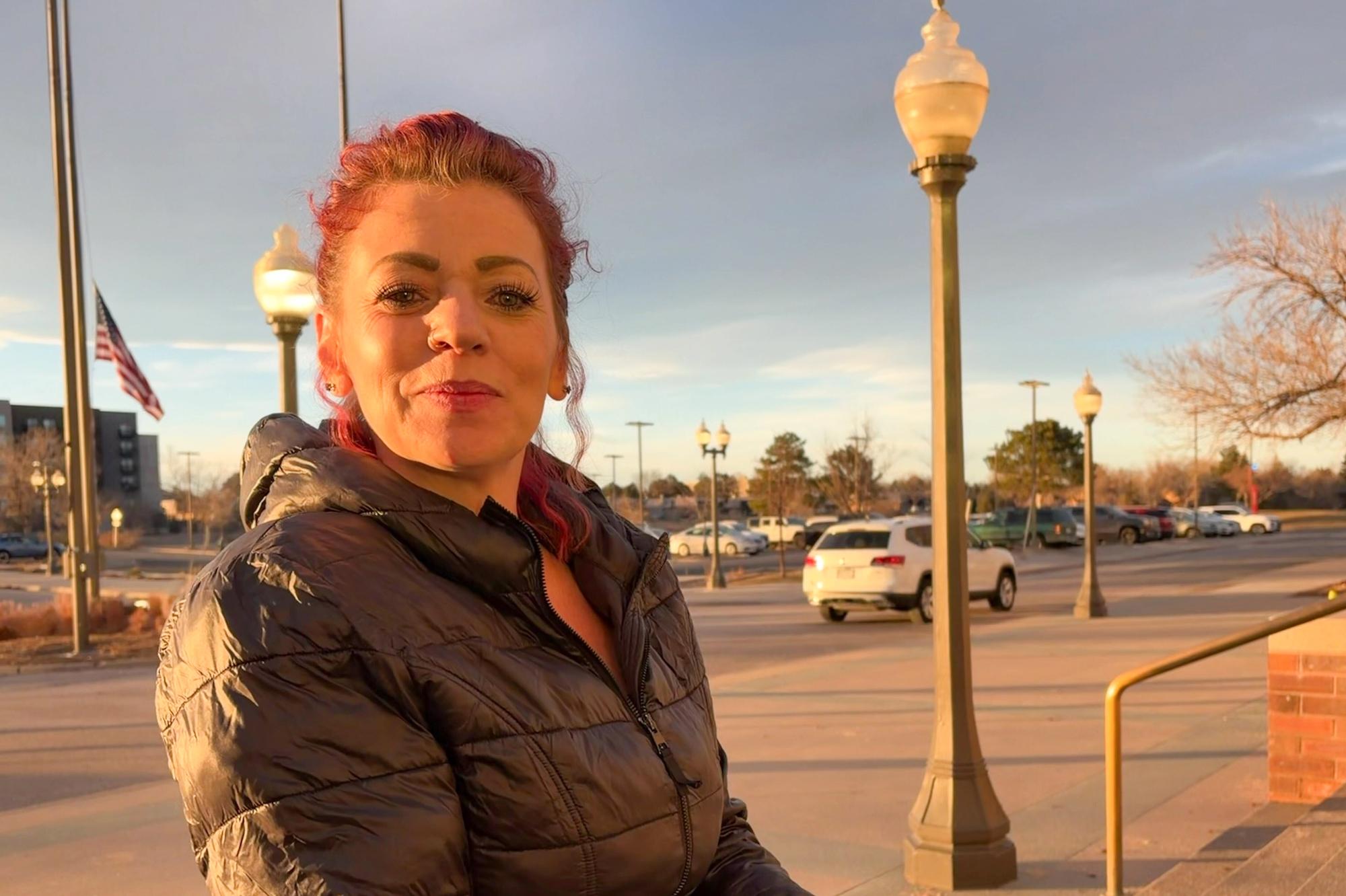
It will be years before Colorado’s new system for the legal use of psilocybin and other psychedelic drugs is fully in place.
But some significant changes are set to arrive by early next year, and Gov. Jared Polis has pledged to oversee a smooth implementation of the measure, which voters approved on Election Day.
“When the people pass things, it's my responsibility as governor to deliver on them, whether I agreed with them or not,” said Polis, who stayed neutral on the proposal, in a post-election interview.
“And of course, we'll likely need some enabling legislation to set it up in a way that prevents any negative consequences and honors the will of the voters,” he continued.
The process will begin with changes to drug laws, followed within the next couple years by the creation of licensed centers where people can use psilocybin.
Criminal penalties will be removed within weeks
The first change will be to remove many criminal penalties for possession of psilocybin-containing mushrooms and other psychedelic drugs. The decriminalization will take effect by Jan. 4, 2023, at the latest, according to dates provided by the Secretary of State’s office.
At that point, it will no longer be a criminal offense under state or local laws to possess or use “natural medicine” for people over 21. That includes psilocybin, psilocyn, DMT, ibogaine and mescaline. (The law will not, however, allow for mescaline extracted from peyote.)
Growing psychedelic mushrooms and certain other plants or fungi also will be allowed, as long as it’s done at a private residence and the plants are kept away from people under 21.
The change also makes it legal to transport, process and give away the drugs to others, as long as it’s for “personal use” and no payment is made. Penalties for buying the drugs also will be eliminated — again, for people under 21.
Timothy Lane, legislative liaison for the Colorado District Attorneys Council, is working with law enforcement and prosecutors to prepare for the change.
“It’s really hard to know what’s going to happen when (decriminalization) kicks in,” he said. “Frankly, you don’t see a lot of criminal cases involving these drugs. How much it’s being used behind the scenes is a little bit unknown.”
Indeed, charges related to psychedelics are relatively rare. Before Denver deprioritized enforcement of anti-psilocybin laws, about 50 people per year were being charged in the city for psilocybin-related offenses.
Kevin Matthews, an organizer of the psilocybin campaign, said it’s too early to tell what effects decriminalization will have. But he stressed that the earlier change in Denver’s psilocybin policies has had no ill effect on public health or safety, according to a unanimous report from a city advisory group, which included local law enforcement representatives.
“Really, not much changed in Denver after deprioritization (of psilocybin enforcement). I wouldn't expect a lot to change across the state either. And again, that's where, you know, we do have to wait and see what the outcomes are,” Matthews said.
But Lane, of the district attorney’s council, expects the state will see more black-market sellers of psilocybin after it loosens its drug laws.
“The fact that there is likely to be an increase in the number of people that are growing it means that there will be individuals who are selling it,” Lane added.
Protections for possession of the drug will make it difficult, he argued, for law enforcement to disrupt those operations. He also is concerned that increased use will lead people to drive under the influence of psilocybin, though that will still be illegal.
Dr. Mason Marks, a medical doctor and law professor, is the project lead for the Petrie-Flom Center for Health Law Policy, Biotechnology, and Bioethics at Harvard Law School. He agreed that there will be black-market sales, but downplayed the significance.
“I don’t know that there’s reason to be super concerned. I think there will be an illicit market in Colorado. There already is anyway,” he said. He added that there are concerns about cardiac risks associated with ibogaine, one of the other drugs that will be decriminalized. Ibogaine also shows potential for addiction treatment, he said.
Meanwhile, even after the upcoming change, federal prohibitions on psilocybin and other drugs will remain in Colorado — meaning that people caught using or selling them could still get into trouble with federal authorities like the Drug Enforcement Agency.
‘Healing centers’ will come later
There’s also one big thing that won’t immediately change at the state or local levels: No one will be allowed to sell these drugs just yet.
Unlike with cannabis legalization, the psychedelics law does not allow for retail sales of the drug. Instead, the state will eventually allow for the creation of “healing centers,” where people can pay to use psilocybin and psilocin in a supervised setting.
It will likely be more than a year until those businesses can launch. First, Gov. Polis will appoint a “Natural Medicine Advisory Board” by Jan. 31. That group will include experts in various fields like mycology, medicine, public health, insurance, religion and criminal justice reform. Law enforcement is not listed among the groups that the governor must include on the board.
The state’s Department of Regulatory Agencies will consult with that group. By Jan. 1, 2024, the agency will create requirements for the training, education and qualifications of the “facilitators” who will run the centers.
After that, the department must adopt more rules for the centers and start accepting applications from facilitators by Sept. 30, 2024. At first, the centers will only be allowed to offer psilocybin and psilocyn, and not the other drugs that are being decriminalized.
Marks, of Harvard, said he was especially concerned about how the state would manage data privacy for people using the healing centers. He questions whether data-privacy rules built into the measure will be strong enough.
“I don’t have a problem with collecting data for research, it just has to be incredibly transparent and entirely voluntary,” he said.
Matthews said some of the most important questions will be about the cost, location and availability of the services.
“How much should it cost for an individual to receive facilitation of these medicines at a licensed healing center?” he said. Towns and cities will not be allowed to ban the centers, though they can regulate where they operate.
Starting in 2026, the state will consider adding DMT, ibogaine, and non-peyote mescaline to the menu.









